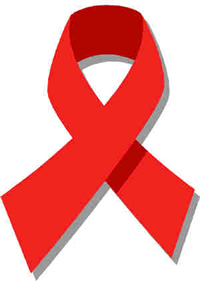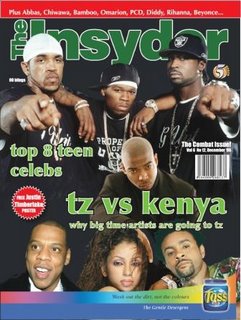
What's the big deal about HIV/AIDS?
It's easy to think that AIDS is something for other people to worry about - gay people, drug users, people who sleep around. This is wrong - all teens, whoever they are, wherever they live need to take the threat of HIV seriously. To be able to protect yourself, you need to know the facts, and know how to avoid becoming infected.
Isn't it only a problem for adults?
No. HIV is a big problem for young people, as well as adults. In 2005, it is estimated that there were 2.3 million people under 15 living with HIV.
Monica: "I am 15 years old and my best friend who is a male has AIDS and we were really close so one night we experimented and after the fact that we "did it" he told me that he had AIDS."
What's the difference between HIV and AIDS?
HIV is the virus that causes AIDS. AIDS is a serious condition in which the body's defences against some illnesses are broken down. This means that people with AIDS can get many different kinds of diseases which a healthy person's body would normally fight off quite easily.
How long does it take for HIV to cause AIDS?
The length of time between being infected with HIV and being diagnosed with AIDS depends on lots of different things. These days, there are many drugs that can be used to help people with HIV, and most doctors believe that a lot of people can be treated for a very long time. Many people do not know exactly when they were infected with HIV, and the length of time between this happening and them being diagnosed with AIDS can be very variable.
So how do you get infected?
HIV is passed on in the sexual fluids or blood of an infected person, so if infected blood or sexual fluid gets into your body, you can become infected. This usually happens by either having sexual intercourse with an infected person or by sharing needles used to inject drugs with an infected person. People can also become infected by being born to a mother who has HIV and a very small number of people become infected by having medical treatment using infected blood transfusions.
HIV can't be caught by kissing, hugging or shaking hands with an infected person, and it can't be transmitted by sneezes, door handles or dirty glasses.
What is 'safe sex'?
Safe sex means sexual activities which you can do even if one person is infected with HIV, and they definitely won't pass it on to the other person. Loads of activities are completely safe. You can kiss, cuddle, massage and rub each other's bodies. But if you have any cuts or sores on your skin, make sure they are covered with plasters (band-aids). Nothing you do on your own can cause you to get HIV - you can't infect yourself by masturbation.
What is safer sex?
Safer sex also means using a condom during sexual intercourse. Using a condom is not absolutely safe as condoms can break, but condoms can be effective if they are used correctly.
Oral sex (one person kissing, licking or sucking the sexual areas of another person) does carry some risk of infection. If a person sucks the penis of an infected man, for example, infected fluid could get into the mouth. The virus could then get into the blood if you have bleeding gums or tiny sores somewhere in the mouth. The same is true if infected sexual fluids from a woman get into the mouth of her partner. But infection from oral sex alone seems to be very rare.
Can you get infected your first time?
Yes, if your partner has HIV and you have unsafe sex, then you can become infected.
Is there a cure?
There is no cure for HIV. HIV is a virus, and no cure has been found for any type of virus. Recently, doctors have been able to control the virus once a person is infected, which means that a person with HIV can stay healthy for longer, but they have not managed to get rid of the virus in the body completely.
How can I tell if someone's infected with HIV?
There is no way to tell just by looking at someone whether they are infected with HIV. Someone can be infected but have no symptoms and still look perfectly healthy. They might also feel perfectly healthy and not know themselves that they are infected. The only way to know if a person is infected or not is if they have a blood test.
How can I get tested?
You may find it helpful to talk to an adult - perhaps a parent, school nurse or teacher may be able to advise you where you can have a test. It's much better to talk to someone than to worry on your own. The clinic will suggest that you wait three - six months after your last risky sexual contact before having a test. This is because the virus is difficult to detect immediately after infection.
Will they tell my parents?
The clinics in different places have different policies. Most (but not all) clinics have a confidentiality policy, and will not tell anyone, although some places will want to bring a parent to give consent. You can phone the clinic before you go and find out.
What will they do?
Before they do anything, the doctor or nurse will ask if you're sure you want to have a test. They will usually take a sample of blood from you to examine. If you also want to be tested for STD's, they may take a urine sample, or they might ask if they can take a swab from the vagina or penis. Some places can give you the results on the same day, in other places you may have to wait for a week or more. While you wait, you shouldn't have sexual contact with anyone.
I have HIV - what should I do?
If you have found that you have HIV, you will need to tell the people who you have had sex with and anyone you have shared needles with so that they can decide if they want to have a test. This can be a very difficult thing to tell someone. If you think you can't tell them, your doctor or nurse may be able to help you. Your doctor at the clinic should also be able to give you more advice about how to stay healthy. They will also be able to tell you if you need to have any other blood tests done, and talk to you about medication.





